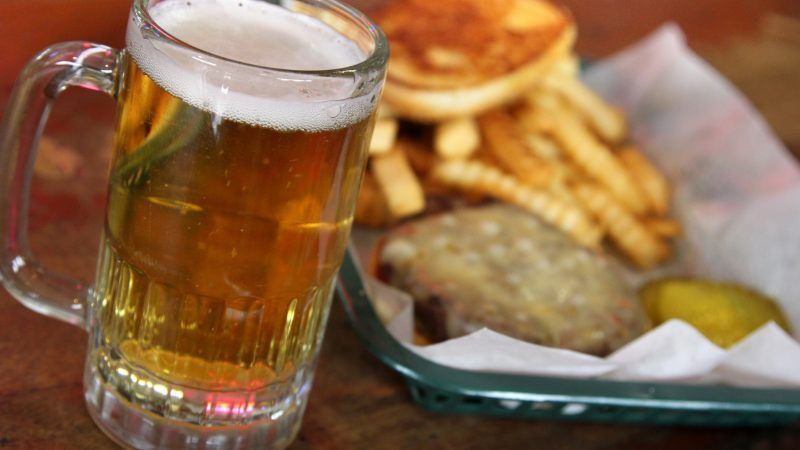Some State Booze Laws Are Improving, Others Are Only Getting Worse
The moral arc of the universe is actually a squiggly line

This month, Denver announced it would roll back some restrictions on drinking in public. Elsewhere, a new North Carolina law loosened some beer-distribution rules.
State (and local) alcohol laws are forever changing. Often, as in Denver and North Carolina, the changes are welcome.
That's also the case in Connecticut, where a law will allow out-of-state wine stores and retailers to ship wine to state residents. And it's true in Kansas, where a new law allows the sale of beers up to 6% ABV in grocery stores.
In many cases, one could be forgiven for a creeping sense of optimism. Wow, it's great that's legal now. But I tend to think otherwise: Why the heck wasn't that legal until now?
Still, my pessimism over the slow pace of progress is tempered by the fact that these incremental changes for the better are so often juxtaposed against far worse things—namely awful booze laws that won't change or, worse still, lousy, laws that have only recently found their way onto the books.
In fact, for every state that's embraced one or more facets of alcohol deregulation, you'll find others have done just the opposite. It's in this way that New Jersey's awful, backsliding new craft beer regulations, which I wrote about last week, hardly stand alone.
In Massachusetts, for example, all happy hour drink specials continue to be illegal and have been since the mid-1980s. The incident that spurred the ban took place when a drunk woman jumped onto the hood of a car in the parking lot of a Ground Round, a local pub chain. The car was also driven by another drunk person, right after both had consumed cheap beer at the pub. The woman fell off the car and died.
Massachusetts's happy hour ban was supposed to combat such tragedies. But it continues not to do so. Just this week, a 74-year-old allegedly intoxicated man was arrested after the police say he plowed into two people outside an Applebee's restaurant.
That's on top of the fact, as I wrote in a 2015 column, that Massachusetts "has the second-highest rate of drunk driving in New England, and a rate that's 15 percent higher than the national average."
Oftentimes, even in states that deregulate, the stench of Prohibition often still lingers.
Take a new West Virginia law, which took effect this week, reports the Williamson Daily News. The law increases the maximum ABV beers sold in the state may contain from 12% to 15%. It also allows customers to purchase more than two growlers of beer. Another law, which also took effect this week, will allow restaurants, wineries, breweries, and others to sell alcohol on Sundays after 10 a.m. Sunday bottle sales are still illegal until 1 p.m.
Hence, if you want to buy a bottle of Dogfish Head 120 Minute IPA (which clocks in at 15-20% ABV)—or, say, a bottle of anything on Sunday morning—you'll still have to leave West Virginia to do so.
That stench of Prohibition also lingers in Texas, where a new state law will allow some restaurants to deliver alcohol to customers who also order food. That's great. But standalone booze deliveries are still illegal under the law. Of course, there's a catch that basically swallows the rule.
"[I]f you are ordering a dozen beers from a pizza parlor with a beer and wine permit," News 4 San Antonio reports, "you'll need to make sure to add a couple orders of breadsticks to go with it."
Craft beer—like the alcohol industry generally—can "only go as far as lawmakers will allow," I wrote earlier this year. Even as state alcohol laws continue to evolve, it's clear that a willingness to expand choice through deregulation is something many lawmakers don't yet possess.


Show Comments (29)